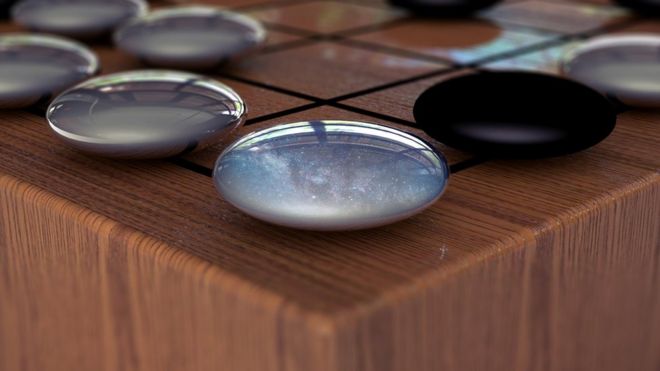Google DeepMind: Al designed to master the Chinese game of Go
Google's DeepMind says it has made another big advance in artificial intelligence by getting a machine to master the Chinese game of Go without help from human players.
The AlphaGo program, devised by the tech giant's AI division, has already beaten two of the world's best players.
It had started by learning from thousands of games played by humans.
But the new AlphaGo Zero began with a blank Go board and no data apart from the rules, and then played itself.
Within 72 hours it was good enough to beat the original program by 100 games to zero.
DeepMind's chief executive, Demis Hassabis, said the system could now have more general applications in scientific research.
"We're quite excited because we think this is now good enough to make some real progress on some real problems even though we're obviously a long way from full AI," he told the BBC and other journalists.
The London-based artificial intelligence company's software defeated leading South Korean Go player Lee Se-dol by four games to one last year.
In a game where there are more possible moves than there are atoms in the universe, it was a triumph for machine over man and one that came much earlier than many in the AI world had expected.
AlphaGo followed this with the defeat of the world's number one Go player, China's Ke Jie, in May.
As with many advances in this field, the achievements required the combination of vast amounts of data - in this case records of thousands of games - and a lot of computer-processing power.
David Silver, who led that effort, says the team took a very different approach with AlphaGo Zero.
"The new version starts from a neural network that knows nothing at all about the game of Go," he explained.
"The only knowledge it has is the rules of the game. Apart from that, it figures everything out just by playing games against itself."
Source: BBC




Comments
Post a Comment